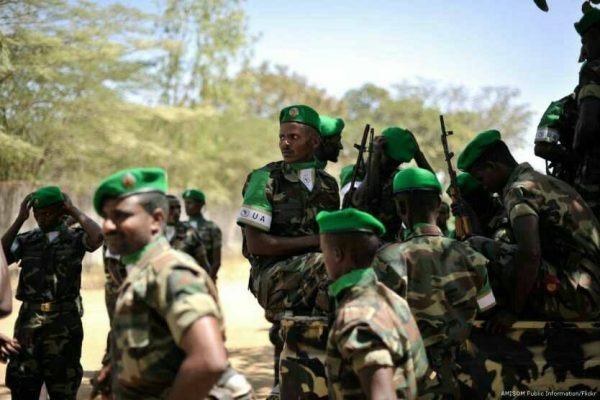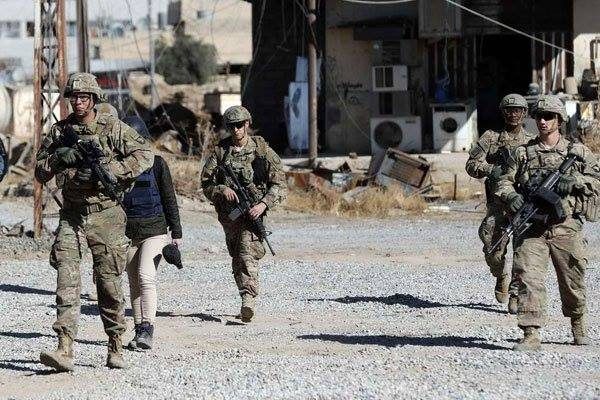The clash between the United States and Al Shabaab in the horn of Africa is intensifying.
US Africa Command reported that two Al Shabaab militants were killed and another injured in an airstrike in southern Somalia. According to the military’s report, the airstrike occurred Monday in the vicinity of the town of Jilib, in the Middle Jubba region. It marked the fourth airstrike in Somalia by US forces so far this year.
The strike came a few days after a deadly attack at the hands of the Al Qaeda Al Shabaab-affiliated group in the Somali capital of Mogadishu. On Friday, February 23, two car bombs ripped through the city. Both targeted the vicinity of the presidential palace. The first was aimed at the presidential complex itself, while the second detonated next to a nearby hotel.
While several dozen were pronounced dead at the scene, the death toll has since risen to 38, according to medical officials in the city. In addition to the blasts, a battle broke out between gunmen and government security forces in which five attackers were killed.
Responsibility for the attacks was quickly taken by Al Shabaab, announcing it was behind the incidents through its Shahada News Agency Telegram channel and Radio al Andalus website.
The question moving forward is, will there be any change in US military cooperation with Somalia? If Al Shabaab continues to escalate its activities in the country, will the United States respond in turn?
US intervention in Somalia and Al Shabaab’s reemergence in Somalia have been rising in tandem for some time. Friday’s bombings were just the latest in a long series of devastating attacks in Somalia at the hands of militants over the past several months. In late September, fighters attacked a military base outside the capital Mogadishu with car bombs and gunfire, killing eight soldiers and wounding several others. The attack was described by Somali military officials as “very sophisticated,” opening with two explosions, followed by a multi-pronged advance on the base by militants that approached from three directions simultaneously.
Several weeks later, Al Shabaab orchestrated a massive bombing in Mogadishu that killed over 300. The blast came from a small truck filled with explosives that detonated on one of the busiest thoroughfares of the capital and was described by authorities as the “Somali 9/11.” In December, Al Shabaab struck again, this time penetrating a police academy via a militant disguised as an officer. After entering the facility, the attacker blew himself up, killing 18 and wounding an additional 15.
These persistent incidents as well as the most recent attack in Mogadishu demonstrate Al Shabaab making a persistent comeback in Somalia. The government has waged a long war against the Al Qaeda-affiliated group since successfully repelling an insurgency of militants in Mogadishu with the help of an African Union (AU) coalition in 2011. That effort had succeeded in dislodging Al Shabaab from its enclaves in and around the capital, and also led the way for a more permanent deployment of AU troops in Somalia, dubbed the African Union Mission in Somalia (AMISOM).

While Al Shabaab was far from vanquished from the Horn of Africa and other areas in the western areas of the continent, the victory did produce a lull in attacks for several years and also began a period of more territorial gains for AMISOM troops purging militants from rural areas in Somalia. Internal factional fighting within Al Shabaab itself also contributed to the inability of the group to stand up to the African coalition.
Six months ago, Al Shabaab began resurfacing in Somalia. The weakening of government forces and their inability to face the threat posed by Al Shabaab has opened the door for additional extremist groups to make headway in the country, including the Islamic State.
Through the latter part of 2017, as Somalia was subjected to increasing thrashing at the hands of the jihadists, the US began to carry out surgical strikes in the country targeting militant enclaves. In November, Somalia received its first American drone strikes, demonstrating its growing importance for Washington as a center in the global war on Jihadism. By the end of 2017, Somalia had experienced over 30 US drone strikes targeting various Islamist groups. As evidence from last Monday’s strike announced by AFRICOM, it is clear that America intends to push forward with military air support for the Somalis.
The question moving forward is, will there be any change in US military cooperation with Somalia? If Al Shabaab continues to escalate its activities in the country, will the United States respond in turn?
The latest reports from international media sources indicate that Al Shabaab is not only ramping up its bombings and attacks on urban centers, but also diversifying the ways in which it harasses authorities in Somalia. Al Shabaab has been systematically wagging a so-called “economic war” against Somalia, in addition to its more conventional attacks. Recent reports, for instance, indicate that Al Shabaab is targeting convoys of goods to government-controlled areas, confiscating the items, and in some cases kidnapping the transporters.

On Wednesday, international media reported a recent incident in which militants attacked a procession of carts of food items to a government-controlled area in the Bakool region. The attackers seized the donkey-pulled carts early Wednesday near the village of Elboon. The militants shot the donkeys and abducted two people who were escorting the carts. The need to transport food via carts and other clandestine means is due to the siege Al Shabaab has imposed on several towns controlled by the Somali government. While government forces and African Union troops have vowed to end the sieges imposed on these civilian areas, many towns remain surrounded by militants.
The fact that Al Shabaab seemingly cannot be dislodged by AMISOM forces alone may be enough of an incentive for the US to considerably increase its presence in the country. No doubt the current US intervention was triggered by the concern that government forces were becoming weaker in their ability to keep militants at bay and respond to the increasingly diverse methods of Al Shabaab and other groups.

In November, US boots on the ground officially increased from 50 to 500. That has certainly made a difference. Al Shabaab now knows they cannot operate at the same level of openness they were once capable of. However, this doesn’t mean the jihadists have been eradicated; they’ve merely shifted their tactics. While once they operated as a full-fledged army in Somalia, today the group looks more like an insurgency. As the unrelenting attacks in Mogadishu and other areas show, Al Shabaab can continue inflicting serious damage with this strategy. Will America decide that more help is necessary to prevent things from going even more downhill?
American policymakers are almost certainly perturbed by the prospect of AMISOM scaling back its presence in the country and a complete withdrawal by 2020, something that will decrease the steadfastness of the country in the face of militants even more. As Africa is becoming an important center of Jihadism, America has a substantial interest in ensuring extremists do not capitalize on Somalia’s fundamental weakness to gain another important foothold on the continent. The Horn of Africa specifically could pose a serious threat to maritime sea routes and even US allies on the Arabian Peninsula if controlled by militant groups.
Another effect of Al Shabaab’s increased activities could be more pressure on the African Union to delay its withdrawal from Somalia. AMISOM has delayed planned exits from the country after considering Somalia’s inability to secure itself. The withdrawal plan could possibly be altered slightly by removing military units as planned and replacing them with police contingents to stabilize specific areas, an idea that has already been written into the current AMISOM mandate.
Somali leadership fervently wants to assert its own independence, especially in the realm of security; the US will not sit by idly if the country continues to fall further into disarray at the hands of militants. This week’s airstrike announced by AFRICOM may be the beginning of an even further increase for US involvement for one of the most tumultuous countries in Africa.
















